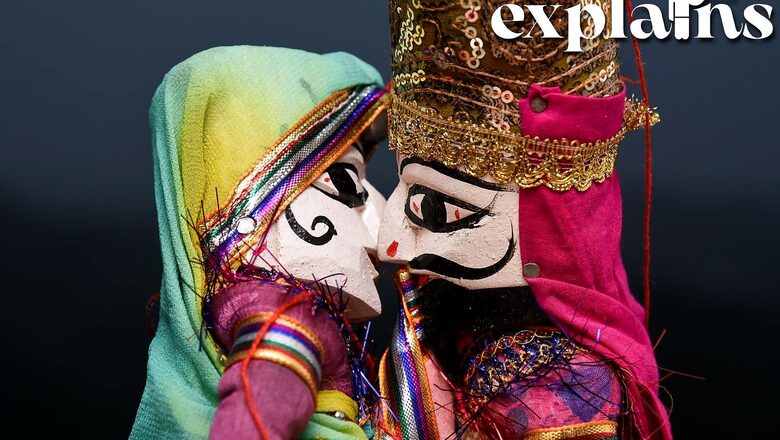
views
As part of the Valentine’s day week celebrations, it’s Kiss Day today. The uniquely human show of affection beg a series of questions – when did humans start kissing, is it universal across cultures, and more. News18 takes a look at some of them, with historical context.
Is Kissing Universal Across Cultures?
According to reports, no. Kissing is not universal among human beings and, even today, there are some cultures that have no place for it, says a report by Psychology Today, adding that this suggests that it is not innate or intuitive, as it so often seems to us.
But kissing behaviour is not unique to humans. Primates, such as Bonobo apes, routinely kiss each other; dogs and cats lick and nuzzle one other and members of other species; and even snails and insects participate in antennal play, the report says.
It’s possible that these animals are grooming, smelling, or conversing with one another rather than kissing, yet their behaviour implies and strengthens trust and bonding.
In 2015, Melissa Hogenboom told BBC Earth that one of the reasons we may have felt obliged to approach close to a partner’s face is to give them a good sniff. Scent can provide a variety of essential information, including nutrition, disease presence, mood, and relatedness, to mention a few. Many animals have significantly more refined senses of smell than humans, so they don’t need to be as close.
The Indian Context of the History of Kissing
The earliest written evidence for kissing comes from India’s Vedic Sanskrit writings, which were written roughly 3,500 years ago, says a report by Wired.
Given the abundance of kissing-like behaviours in the animal kingdom (particularly among our closest primate cousins), it’s possible that our species has been locking lips—on and off—for much longer.
Kissing appears to be mentioned in Vedic texts from ancient India, and the Kama Sutra, which dates back to the 2nd century, devoted a full chapter to kissing forms, the report by Psychology Today says. Some anthropologists believe that when Alexander the Great invaded India in 326 BCE, the Greeks learned about passionate kissing from the Indians. However, this does not imply that sensual kissing originated in India or that it predates the oral foundations of the Vedic writings.
In Homer’s epic poem from the ninth century BCE, King Priam of Troy famously kisses Achilles’ hand to beg the return of his son’s cadaver.
In his Histories, Herodotus mentions kissing among the Persians, who greeted individuals of equal level with a kiss on the mouth and those of slightly lesser rank with a kiss on the cheek. He also claims that because the Greeks ate the sacred cow to the Egyptians, the Egyptians refused to kiss them on the lips.
Kissing is mentioned in the Bible as well. By kissing their blind father Isaac while disguised as Esau, Jacob takes his brother’s blessing. One of the lovers in the Song of Songs, which praises sexual love, begs, ‘Let him kiss me with the kisses of his mouth, for thy love is greater than wine.’
Kissing became more common under the Romans. Romans kissed their partners or lovers, their families and friends, and their rulers. A kiss on the hand or cheek (osculum) was distinguished from a kiss on the lips (basium) and a deep or passionate kiss (savolium).
Kissing was lauded by Roman writers such as Ovid and Catullus, as in Catullus 8.
Where Did the Need to Kiss Come From?
Two hypotheses for why humans need to kiss derive from the assumption that we have an inbuilt preference for lip touching as babies, a report by BBC says.
In one scenario, we may link lip contact with breastfeeding, and that reflex is present in everyone. There is also a hypothesis that moms and their children bond over lip-on-lip kissing due of something called “premastication food transfer“. Our ancient ancestors’ mothers may have pre-chewed our food for us and transferred it directly into our mouths when we were little. This is something we observe in our closest relatives, chimps, as well as other big apes.
Read all the Latest Explainers here















Comments
0 comment